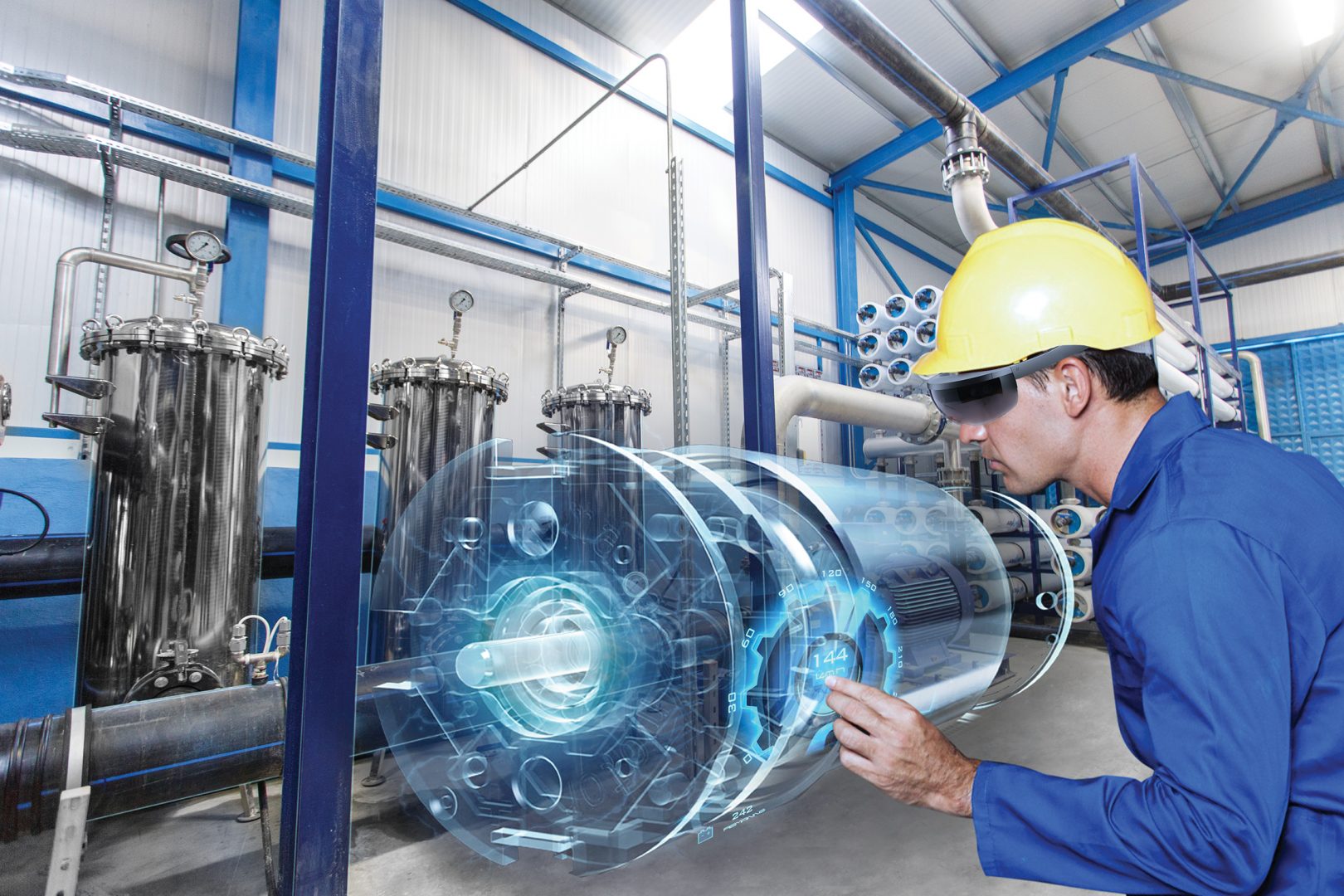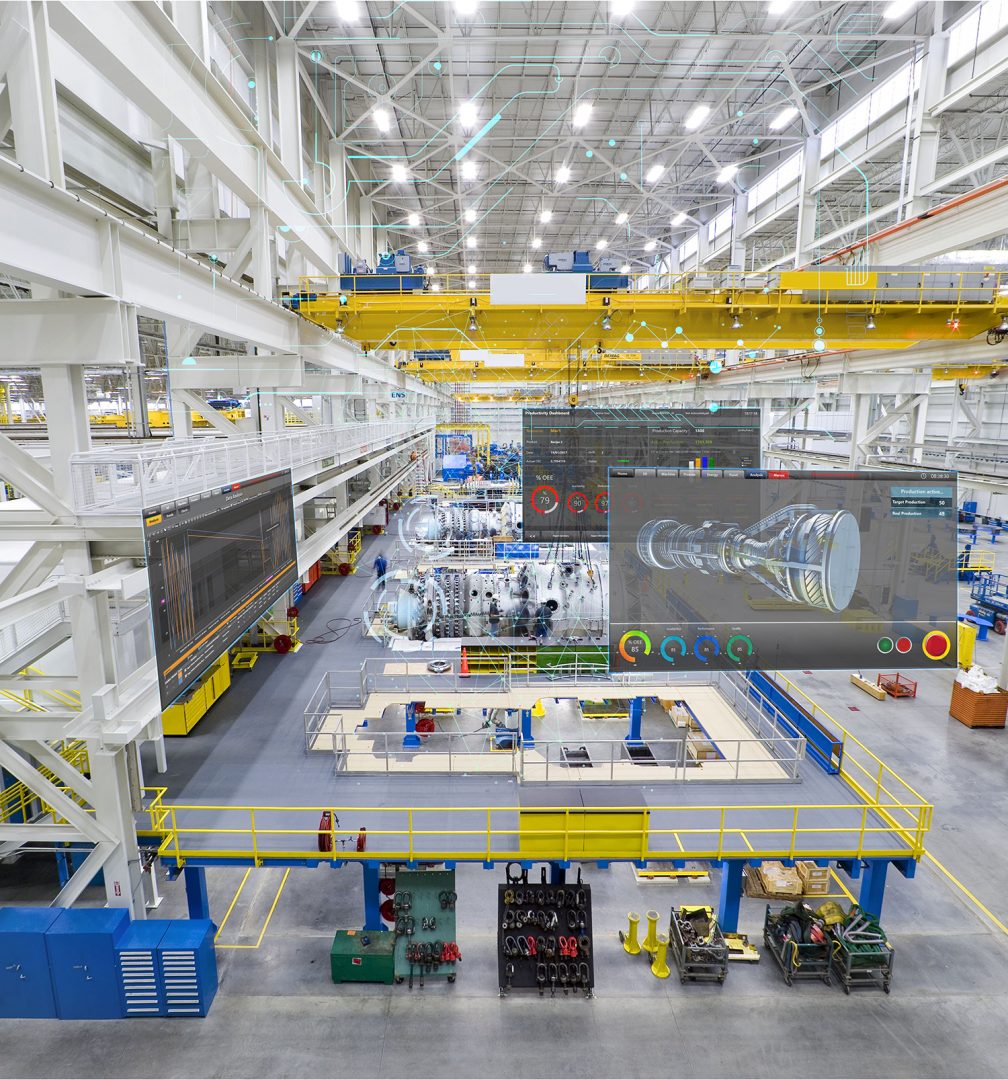 Progea has developed an augmented reality (AR) app that incorporates Human Machine Interfaces (HMIs) onto Smart Glasses. By superimposing digital information onto physical objects, the AR HMIs empower factory workers to interact with machines and manufacturing processes virtually. The app, NExT AR, uses the SCADA/HMI platform Movicon.NExT, so it provides genuine feedback and control while seamlessly integrating with other management systems and software layers.
Progea has developed an augmented reality (AR) app that incorporates Human Machine Interfaces (HMIs) onto Smart Glasses. By superimposing digital information onto physical objects, the AR HMIs empower factory workers to interact with machines and manufacturing processes virtually. The app, NExT AR, uses the SCADA/HMI platform Movicon.NExT, so it provides genuine feedback and control while seamlessly integrating with other management systems and software layers.
AR offers a unique opportunity to enrich our working environment, by providing an interactive platform that displays relevant virtual information and aligns real and digital objects with each other in real-time. When AR is associated with head-up-displays (HUDs), its potential skyrockets, as it enables hands-free interaction with the surrounding mixed-reality environment.
An area where AR HUD has massive potential is the factory floor. By eliminating the physical separation between machines and their automation data, this technology can help factories to improve industrial processes and product quality whilst minimising errors, downtime and costs. For example, an operator in the field could perform maintenance activities faster, while watching instructions on how to perform each task correctly. Similarly, it would be possible to turn valves while monitoring the values of the flow downstream change in real-time, making carefully judged adjustments.

The functionalities of a high-quality SCADA on HUD
The NExT AR app was created to allow plant operators to follow key performance indicators (KPIs), receive alerts and notifications as well as interact with critical plant processes in real-time from anywhere across the factory floor. More precisely, the app connects wearables to the factory’s SCADA (supervisory control and data acquisition) system, thus creating a self-contained, hands-free and ergonomic HMI (human-machine interface). In this way, operators can access any dashboards, alerts, pages, screens, real-time and historical data stored within the SCADA system.
NExT AR is compatible with Microsoft HoloLens and Android smart glasses, including Google Glass, and uses Movicon.NExT industrial SCADA platform as its centralised data management system. The latter was also developed by Progea and is available in the UK through Products 4 Automation (P4A).
Remote access from NExT AR to SCADA is provided by the Movicon.NExT HTML5 Web Client. The two systems interact via Wi-Fi connections and OPC UA server-client communication channels. In this way, the HUD can display any data from Movicon.NExT.
More precisely, the functions of Movicon.NExT accessible from NExT AR and the interactions between the two platforms are fully customisable, in order to satisfy different industrial needs. Bespoke solutions can be either created by the users, via software development kits (SDK), or by Progea itself.
Furthermore, the modular and flexible workspace presented by Progea’s SCADA is designed to ensure ease of use and intuitive navigation via advanced visualisation capabilities and captivating graphics. The platform uses Windows Presentation Foundation (WPF) resolution-independent and vector-based rendering engine. This next-generation technology offers 2D and 3D graphics. As a result, these features are also present in NExT AR, which can support 3D and holographic imaging visualisations as well as “’pinch and zoom’ functionalities that further optimise user interaction.
Factories become smart under the eye of AR HUD
In the past, plant operators and engineers had to choose between staying at their own desk to monitor the equipment via the SCADA system or be on the factory floor to look at the machines themselves, where they were out of touch with other plant and control systems. Thanks to NExT AR, this dilemma no longer exists, as the shop floor and higher enterprise levels can truly connect.
As mixed reality becomes more and more popular for industrial applications, users’ expectations will continue to grow. Progea is continuously pushing the boundaries of what is possible with AR HMI, by implementing new functionalities and expanding the compatibility of NExT AR to new wearables. In this way, the company is deploying the Industrial Internet of Things and paving the way for Industry 4.0.





